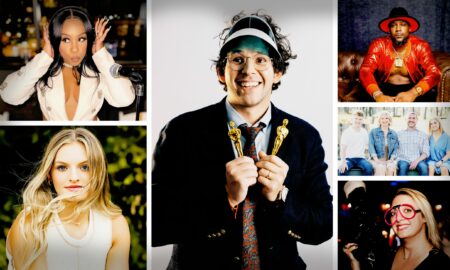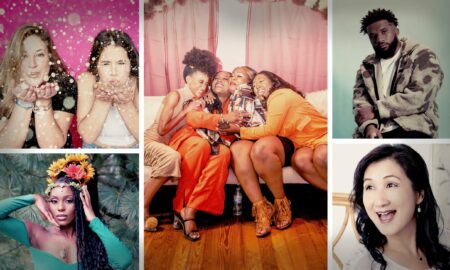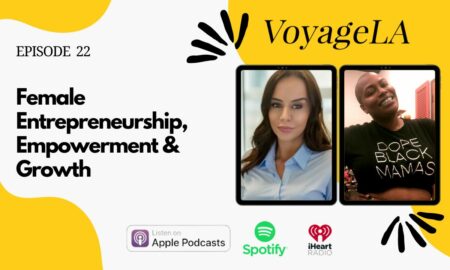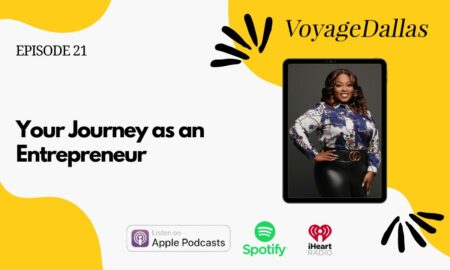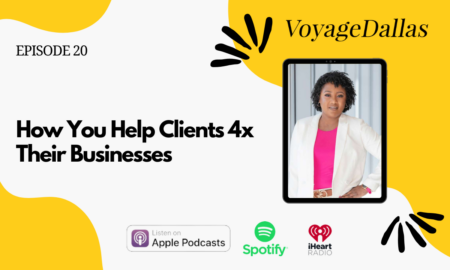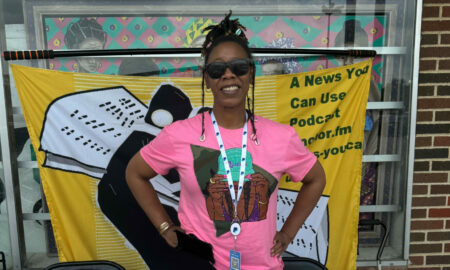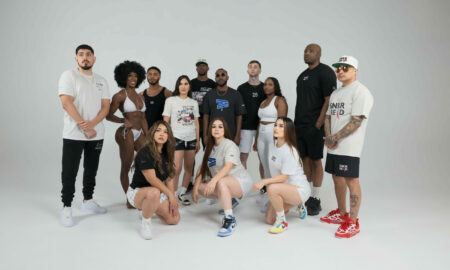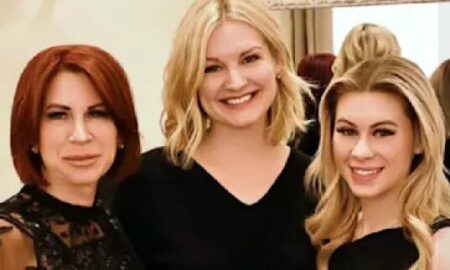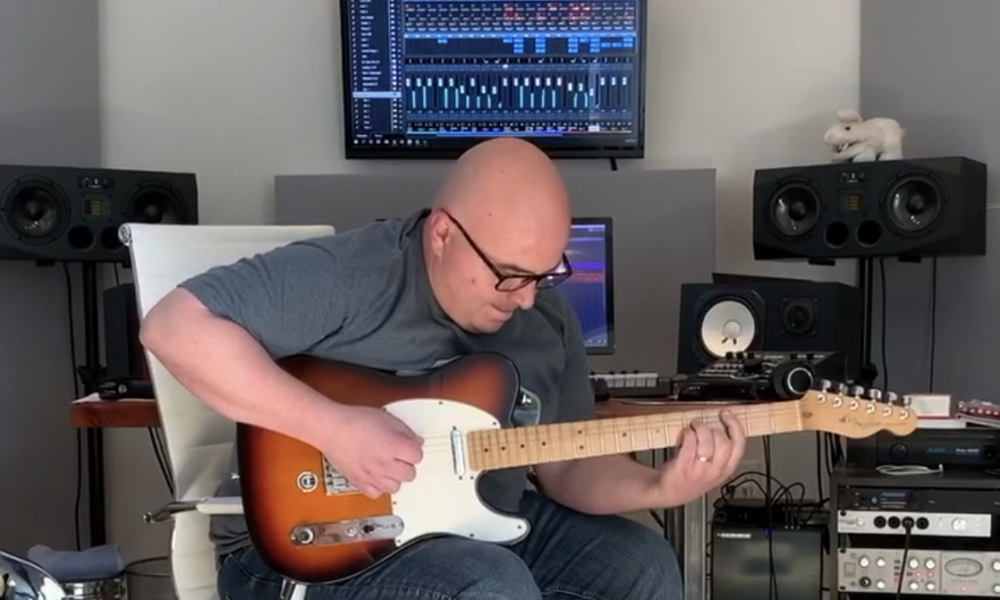

Today we’d like to introduce you to Aaron Kelley.
Aaron, can you briefly walk us through your story – how you started and how you got to where you are today.
I grew up playing guitar and studied jazz at UNT, but never imagined I would be a music producer. I thought I would just move to L.A. and try to get on someone’s tour as their guitarist. Before I could do that, I was asked to play on an EP for a songwriting CEO of an insurance sales organization. That was my introduction to the Dallas studio scene in the late ’90s, and in particular, Planet Dallas, which was a studio owned and operated be Rick Rooney. We became fast friends and I would spend a good deal of my spare time hanging out in the back of the control room as he ran sessions engineering bands. Being a trained musician and having a mind for arranging and orchestrating (as well as an inability to keep my ideas to myself), I would make suggestions to the bands. To my relief, they were generally well-received and Rooney appreciated my help.
As I earned money through playing on sessions, in bands, and the odd arranging gig, I started investing in recording gear. This was originally so that the original bands I was in could actually record our own demos and records. Studios were super expensive back then and we were all varying degrees of broke. I was surprised when I started getting calls to record bands at my rent house and started really trying to up my game. Some of the bands were on local labels like Idol Records and Last Beat and so had a budget to work with. I was way less expensive than going to a “real” studio and we were all friends in the scene anyway, so the vibe was great. Again, being a trained musician allowed me to add creative direction and play parts on guitar, bass, and keys that a lot of people just aren’t able to. All the while I am reinvesting the money into my gear and getting better mics and preamps. Eventually, I decided to commit to being a producer, engineer, writer, arranger and quit playing gigs at night. I just couldn’t keep up working in the studio all day and then playing all night. It was a leap of faith but paid off.
I started renting actual studio space at the old Summit Studio in the B room and was there for two years before the owner of the building had to sell. I moved my studio back home for a while but I was outgrowing the space. I met by chance an eccentric man who owned a building with a racket ball court that he no longer used due to his age and asked if I would be interested in designing a studio for space. He had an artist he wanted to have recorded, which is how he had found me, and seeing that I was going to be out of a studio soon, I agreed. This was the beginning of an eight-year stint, during which I not only recorded his artist, but more local bands, singer-songwriters, weekend warriors, commercial jingles, and production music. Over the eight years, the owner became increasingly eccentric and his family, who were also officing in the building, became increasingly vocal about wanting to greatly increase my rent obligation.
Meanwhile, I had for years kept in touch with Mark Menza, who had built a studio in the design district with an empty unfinished B room. I told him I was interested in renting and we agreed on terms for the rent and he finished the room out like a champ! Mark does a lot of audio posts as well as being a composer for films and commercials, which opened up the possibility of collaboration and exposed me to a new set of clients. It was during this time that I signed on with the Kim Dawson Agency as a voice-over talent. When the owners of that building decided to sell quite unexpectedly, my wife Kristi and I decided we would build our own studio in our back yard. No more rent. No more moving studios. It was the best decision we could have made. A lot of my work is me alone in my studio writing, producing, recording, playing all the instruments, programming, editing, mixing, and sending tracks to clients and collaborators all over the world. I’ve worked on records for Don Henley, Charlie Puth, Meghan Trainor, Flo Rida, Sarah Jaffe, Alex McArtor, and more. This business model of working from my back yard and sending sessions over the internet has been further validated by the pandemic.
Has it been a smooth road?
Not a smooth road. Self-doubt plagues all artists, and all people really. It has definitely been an issue for me. Also, the stability of this business ebbs and flows and especially after the crash of 2008, it was difficult. It has been incredibly important to be able to adapt to the times.
Can you give our readers some background on your music?
I write and produce music. I’m known for being a one-stop-shop. Singer-songwriters come to me because I can execute the entire process from writing to playing and recording all the instruments to mixing. I’m extremely versatile, and I like to think I respect the authenticity of the genres of music that I’m called on to perform. This means I don’t sound like a jazz guy playing country or a rock guy playing R&B. What I am most proud of is the steady growth I’ve seen over the last two years in particular. I’m getting more opportunities to work on major label projects than ever before and feel like I am on the cusp of even bigger things. This is as exciting a time in my career as any I’ve had. At 46 years old, I am still growing, learning, and staying current. I’ve always been a little afraid of what I would describe as shelf life. A lot of musicians get stuck as they age in a certain period and then stop listening and relating to new music. I have made it my mission not to let that happen. I can honestly say that I love almost all genres of music and I really am excited about current trends.
Is our city a good place to do what you do?
Tricky question… Dallas is a good place to live and work because it is affordable. It happens to have a glut of amazing talent due to UNT’s proximity. However, the lack of actual music industry presence makes it challenging. Tech has made it less challenging and the pandemic even less. As sessions in L.A., New York, and Nashville shut down like the rest of the world for a while, it opened people up to work on projects remotely, which is exactly what I am set up for. If someone were to ask me if they should start their career here, I would tell them that it takes a bit more effort to network and get to the major label opportunities from here, but it is not impossible. I certainly would not tell someone to sell everything and move to L.A., but it really depends on what their goals are and what they are willing/able to do to make up for the fact that we are not (yet) and major music city. There are some huge names here, but they still go to Nashville and L.A. to make records a lot of the time.
Contact Info:
- Website: www.aaronkelley.com
- Email: aaron@aaronkelley.com
- Instagram: @aksongworks
Suggest a story: VoyageDallas is built on recommendations from the community; it’s how we uncover hidden gems, so if you or someone you know deserves recognition please let us know here.

